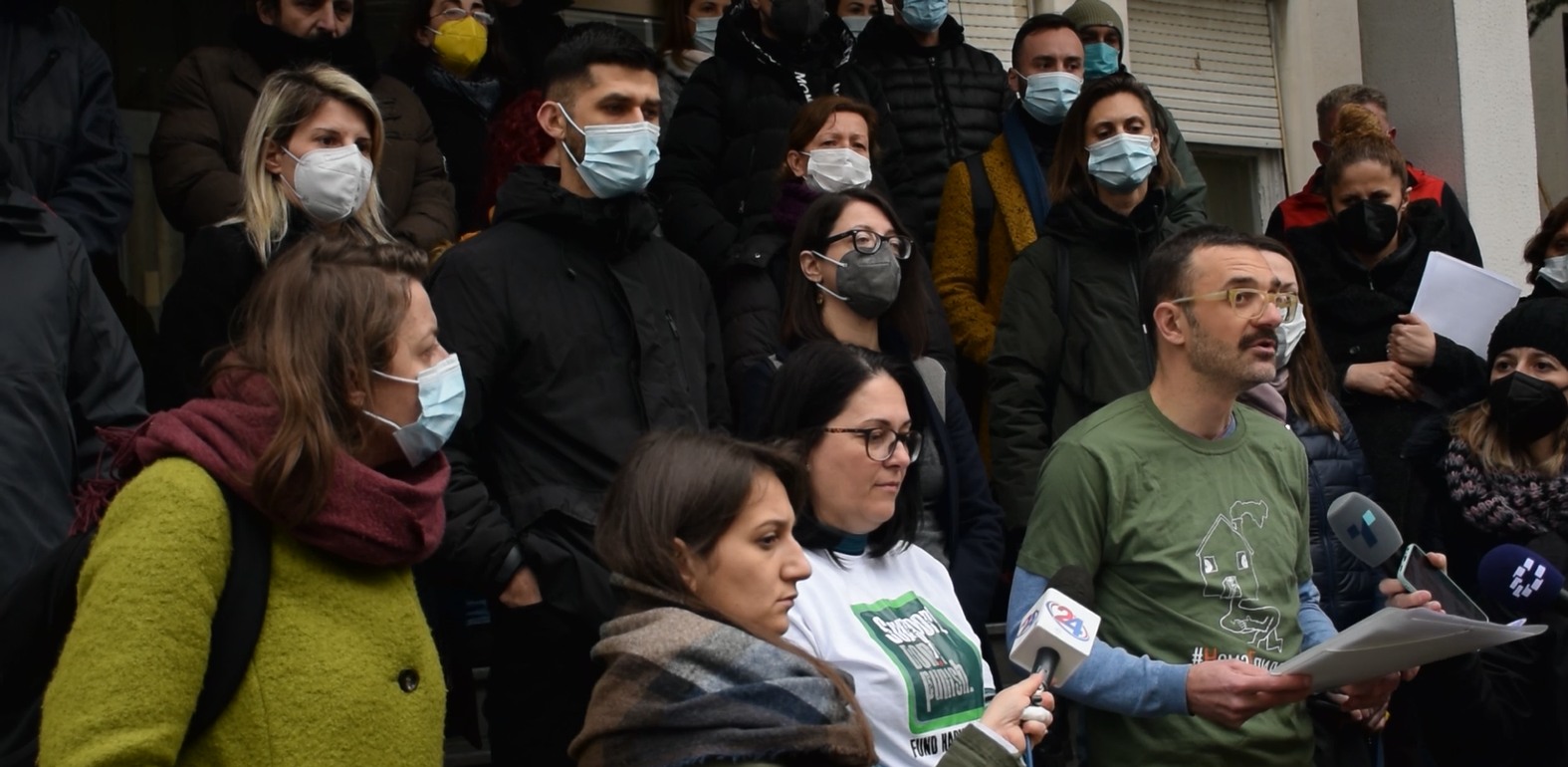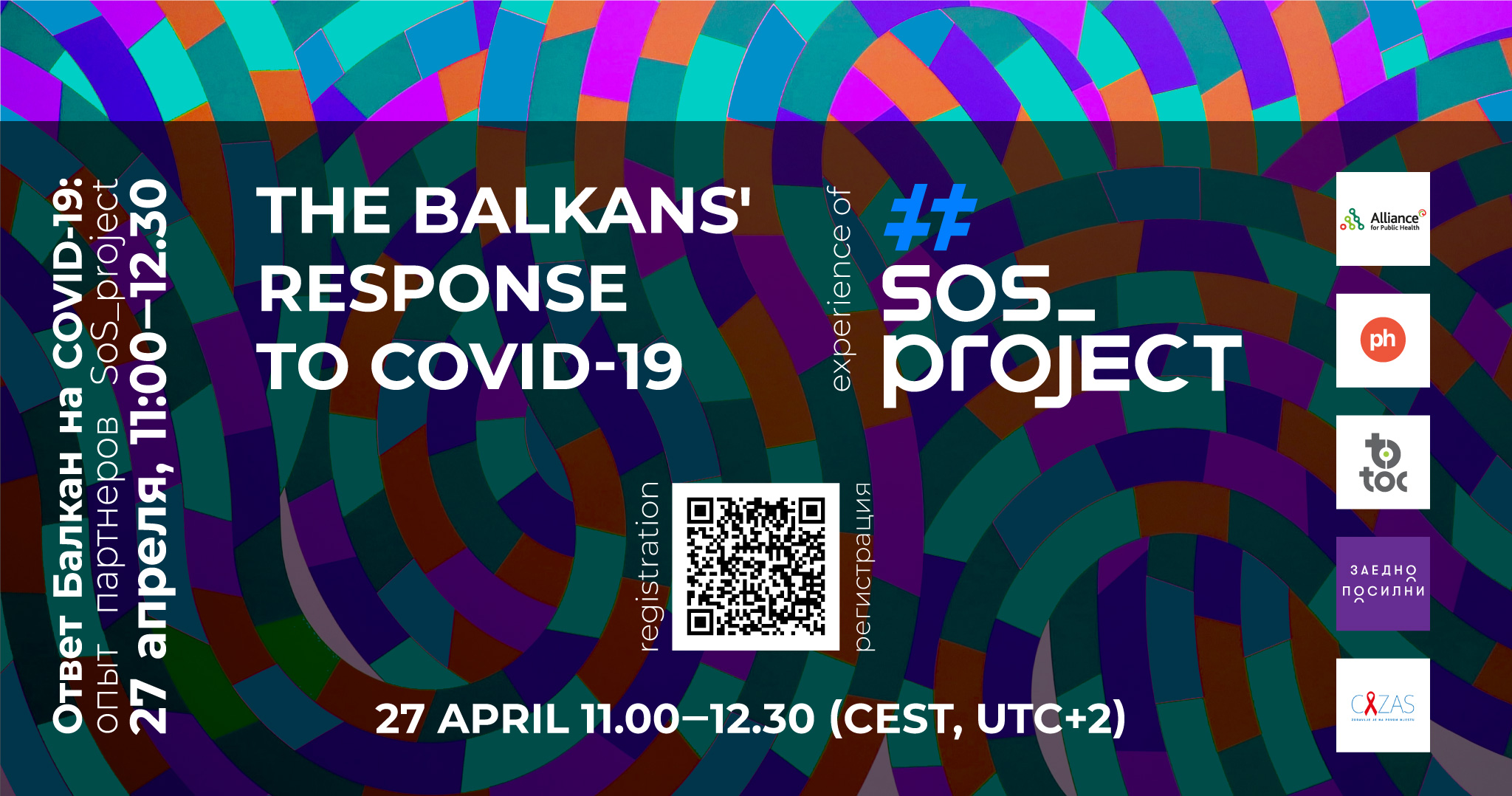Three civil society organisations from North Macedonia, our member HOPS (Healthy Options Project Skopje), Stronger together (Association for Support of People Living with HIV) and HERA (Health Education and Research Association) protested today because of the budget cuts for HIV prevention program.
Here are some extracts from their statement:
By cutting the budget for HIV prevention by 40%, the Ministry of Health puts the health of at least 10,000 affected citizens at stack. In a scandalous and flat way, without any expert discussion, the Ministry of Health cut as much as 40% of the funds provided for HIV prevention in the Program for protection of the population from HIV-infection for 2022, which the Government adopted only a month ago. Thus, the state puts at risk the closure of the established capacities for control of HIV infection in the country and endangers the health of at least 10,000 citizens from the marginalized communities.
Instead of the envisaged 46.5 million denars in the Program for protection of the population from HIV infection intended for HIV prevention services implemented by about 14 associations in 12 cities in the country, the Ministry of Health yesterday announced a public call for associations with an amount reduced by even 19 million denars. The decision was not consulted by the National Commission on HIV.
Thanks to these programs, the Republic of Northern Macedonia in the past 15 years has maintained full control of the HIV epidemic in populations of people injecting drugs and sex workers and one of the lowest infection rates in the region. In the past 3 months, the entire national response to this epidemic is literally at the expense of 14 civil society organizations, which continue to work without any compensation for their work.
Discontinuation of services for vulnerable groups will mean an increase in new infections and an increase in deaths due to HIV, and on the other hand increased pressure on key health institutions, such as the Infectious Diseases Clinic and addiction treatment centers. Even a small increase in the HIV epidemic will lead to a multiplier increase in the cost of treatment and health care. Hence, the decision to arbitrarily cut is simply a bad public health policy.
In Macedonia, young people are still dying from HIV, and according to the methodology of the European Center for Disease Control, it is estimated that even one third (34%) of the total number of people living with HIV in the country are not aware that they have the virus. With this, Macedonia lags significantly behind the world average, which for 2020 was only 16%. The global goal by 2025 is to reduce the percentage of people who are not aware that they have HIV to less than 5%, which will lead to a drastic decline in the transmission of infection and will allow to put an end to the HIV epidemic by 2030.
Given the alarming situation and citing the country’s commitments under the United Nations Policy Declaration on HIV and AIDS of June 2021, including the obligation to end the HIV epidemic, as well as the commitments made by the Government to ensure the continuity of HIV programs, we require:
- Urgently correct the announced public call for associations that will implement the activities for HIV prevention in accordance with the amounts provided in the Program for protection of the population from HIV-infection for 2022, adopted by the Government in February this year;
- The Government and the Parliament should finally guarantee the continuity of the already established system for protection against HIV. This means: The Assembly to adopt without delay and in full the amendments to the Law on Health Care which are in parliamentary procedure, and refer to the mechanism of involvement of associations in the implementation of health programs, and the Ministry of Health to develop bylaws that will fulfilled the obligations from the conclusions adopted by the Government in September 2017 and the obligations from the previous and current Government Strategy for cooperation and development of the civil society sector;
- Due to the long delay in announcing the public call, the Government and the Ministry of Health through intervention support to reimburse the costs of the associations for the first quarter of 2022 incurred due to their dedicated maintenance of the national response to HIV.







